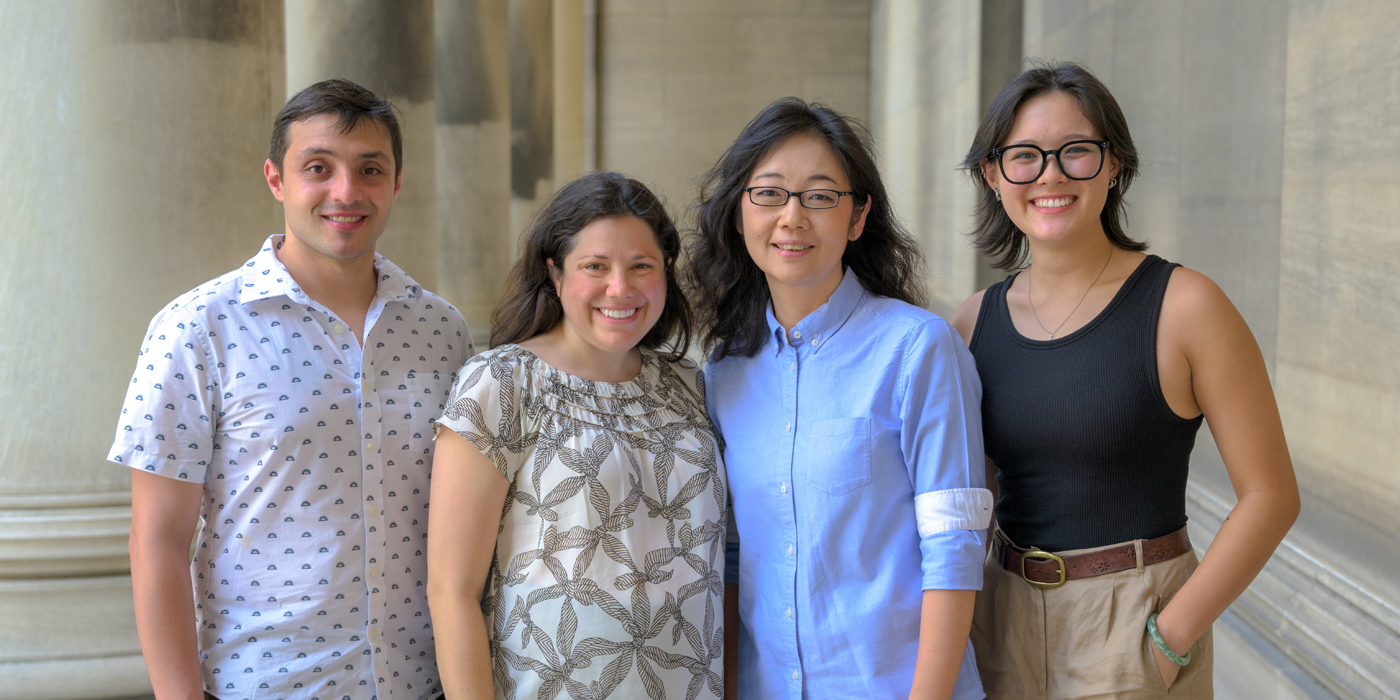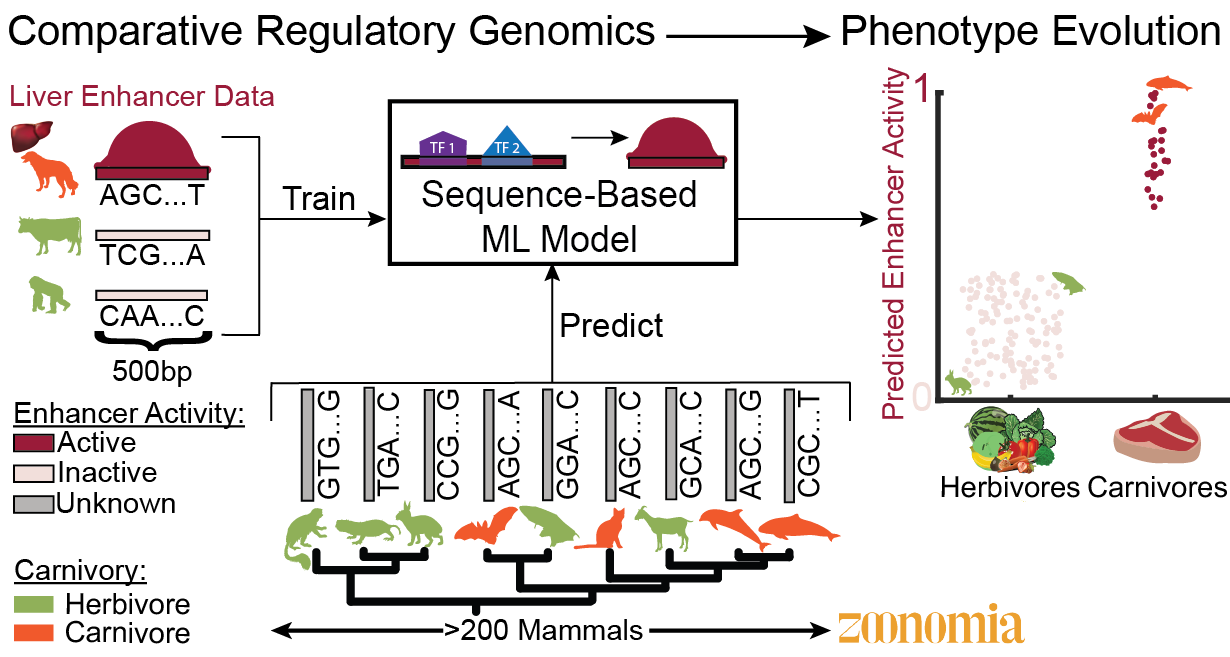Welcome to
the Kaplow lab!

The Kaplow Lab studies vertebrate phenotype evolution by using genome comparisons to identify genetic mechanisms that are shared by distantly related species with the same phenotype. A major challenge in identifying these mechanisms is that they often involve weakly conserved enhancers—non-protein coding regions that regulate when and where genes are expressed. To address this challenge, we develop approaches for identifying enhancers associated with phenotype evolution that use machine learning predictions of tissue- or cell-type-specific enhancer activity across genomes from hundreds of species paired with species’ phenotype annotations. The results from our computational methods often lead to specific hypotheses about the roles of enhancers in regulating genes involved in phenotypes, and we test these hypotheses experimentally. We are currently focusing on metabolic phenotypes, such as carnivory and hibernation. We also investigate the specific mechanisms through which enhancer activity has changed between species, including the influence of changes in transcription factor binding that affect tissue-specific gene expression.
